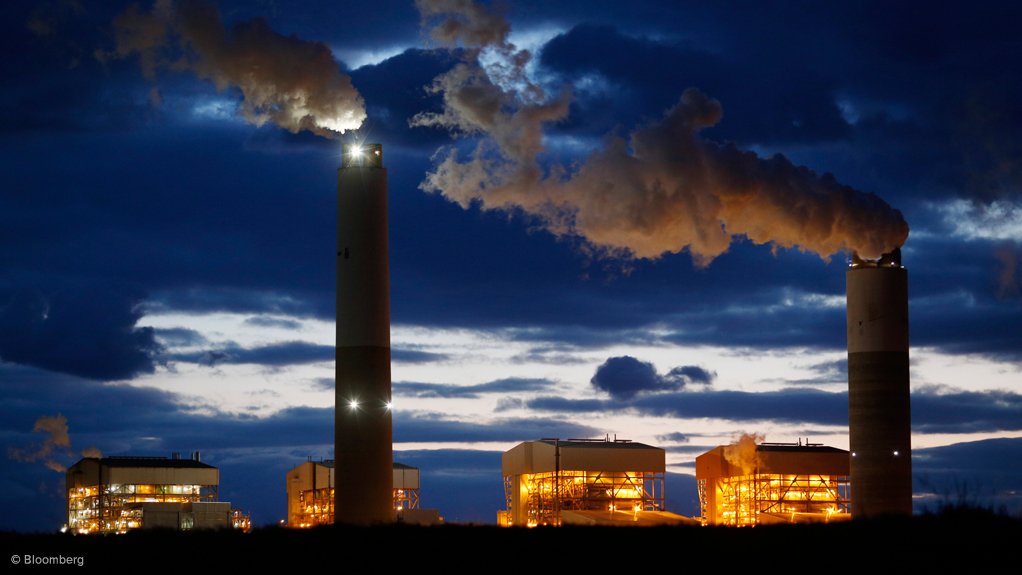Biden administration aims to clean up power sector with revamped rules
WASHINGTON - The Biden administration on Thursday announced it has finalised rules targeting carbon, air and water pollution from power plants that it says could cut over one-billion metric tons from carbon emissions by 2047 even as demand for electricity grows.
The Environmental Protection Agency tightened a proposal to slash carbon emissions from existing coal and new gas plants, and updated and finalized long-standing rules to reduce mercury and toxic air pollutants and clean up wastewater and coal ash discharge.
"EPA is cutting pollution while ensuring that power companies can make smart investments and continue to deliver reliable electricity for all Americans," EPA Administrator Michael Regan said in a statement.
Regan had said in 2022 he intended take on several regulations together to reduce carbon emissions from power plants, and help states, utilities and plant operators make better investment and plant retirement decisions.
The new rules come as electric utilities brace for a spike in demand from data centers powering technology like generative AI, as well as from the growth of electric vehicles.
The United States is projected this year to add more electric generation capacity than it has done in two decades, with 96% being clean energy, White House climate adviser Ali Zaidi told reporters.
Among the changes the EPA made to the carbon rule is dropping hydrogen as a "best system of emission reduction" for gas plants to achieve new standards.
Now it is just carbon capture and sequestration (CCS) that could be used for the longest-running existing coal units and new gas turbines that run more than 40% of the time. The EPA initially proposed that the standards apply to plants that run more than 50% of the time.
The agency also said coal plants that plan to run past 2039 will be required to install CCS technology starting in 2032 in the final rule. It had initially proposed requiring CCS for plants that will be running past 2040.
The Edison Electric Institute, an investor-owned utility trade group, said it appreciated EPA's approach of bundling the different pollution rules to ease compliance, but was disappointed the agency didn't heed its concerns around CCS viability.
"CCS is not yet ready for full-scale, economy-wide deployment, nor is there sufficient time to permit, finance, and build the CCS infrastructure needed for compliance by 2032," EEI president Dan Brouillette said.
Regan told reporters the agency was confident in the technology, which has been bolstered by Inflation Reduction Act tax incentives, and support from "multiple power companies."
The agency also said it has launched a process to get feedback on how to reduce carbon emissions from existing gas plants. The EPA removed coverage of existing gas plants from the initial proposal last month and gave no new timeline for developing a rule to cover the current fleet.
The EPA also reduced mercury emissions limits for lignite coal plants by 70% and emissions limits associated with toxic metals by 67%, the first update of that rule since 2012, while also finalising measures that would eliminate 660-million pounds of pollution per year being discharged into US waterways and protect communities from coal ash contamination.
Environmental groups praised the rules for helping to drive down power sector emissions alongside the IRA, putting the administration closer to its goal of net-zero emissions in the sector by 2035.
"The age of unbridled climate pollution from power plants is over," said Manish Bapna, president of the Natural Resources Defense Council.
Republican Senator Shelley Moore Capito, top Republican on the Senate environment committee, said she plans to introduce a resolution aiming to overturn the rules.
"President Biden has inexplicably doubled down on his plans to shut down the backbone of America's electric grid through unachievable regulatory mandates," she said.
Article Enquiry
Email Article
Save Article
Feedback
To advertise email advertising@creamermedia.co.za or click here
Press Office
Announcements
What's On
Subscribe to improve your user experience...
Option 1 (equivalent of R125 a month):
Receive a weekly copy of Creamer Media's Engineering News & Mining Weekly magazine
(print copy for those in South Africa and e-magazine for those outside of South Africa)
Receive daily email newsletters
Access to full search results
Access archive of magazine back copies
Access to Projects in Progress
Access to ONE Research Report of your choice in PDF format
Option 2 (equivalent of R375 a month):
All benefits from Option 1
PLUS
Access to Creamer Media's Research Channel Africa for ALL Research Reports, in PDF format, on various industrial and mining sectors
including Electricity; Water; Energy Transition; Hydrogen; Roads, Rail and Ports; Coal; Gold; Platinum; Battery Metals; etc.
Already a subscriber?
Forgotten your password?
Receive weekly copy of Creamer Media's Engineering News & Mining Weekly magazine (print copy for those in South Africa and e-magazine for those outside of South Africa)
➕
Recieve daily email newsletters
➕
Access to full search results
➕
Access archive of magazine back copies
➕
Access to Projects in Progress
➕
Access to ONE Research Report of your choice in PDF format
RESEARCH CHANNEL AFRICA
R4500 (equivalent of R375 a month)
SUBSCRIBEAll benefits from Option 1
➕
Access to Creamer Media's Research Channel Africa for ALL Research Reports on various industrial and mining sectors, in PDF format, including on:
Electricity
➕
Water
➕
Energy Transition
➕
Hydrogen
➕
Roads, Rail and Ports
➕
Coal
➕
Gold
➕
Platinum
➕
Battery Metals
➕
etc.
Receive all benefits from Option 1 or Option 2 delivered to numerous people at your company
➕
Multiple User names and Passwords for simultaneous log-ins
➕
Intranet integration access to all in your organisation




















